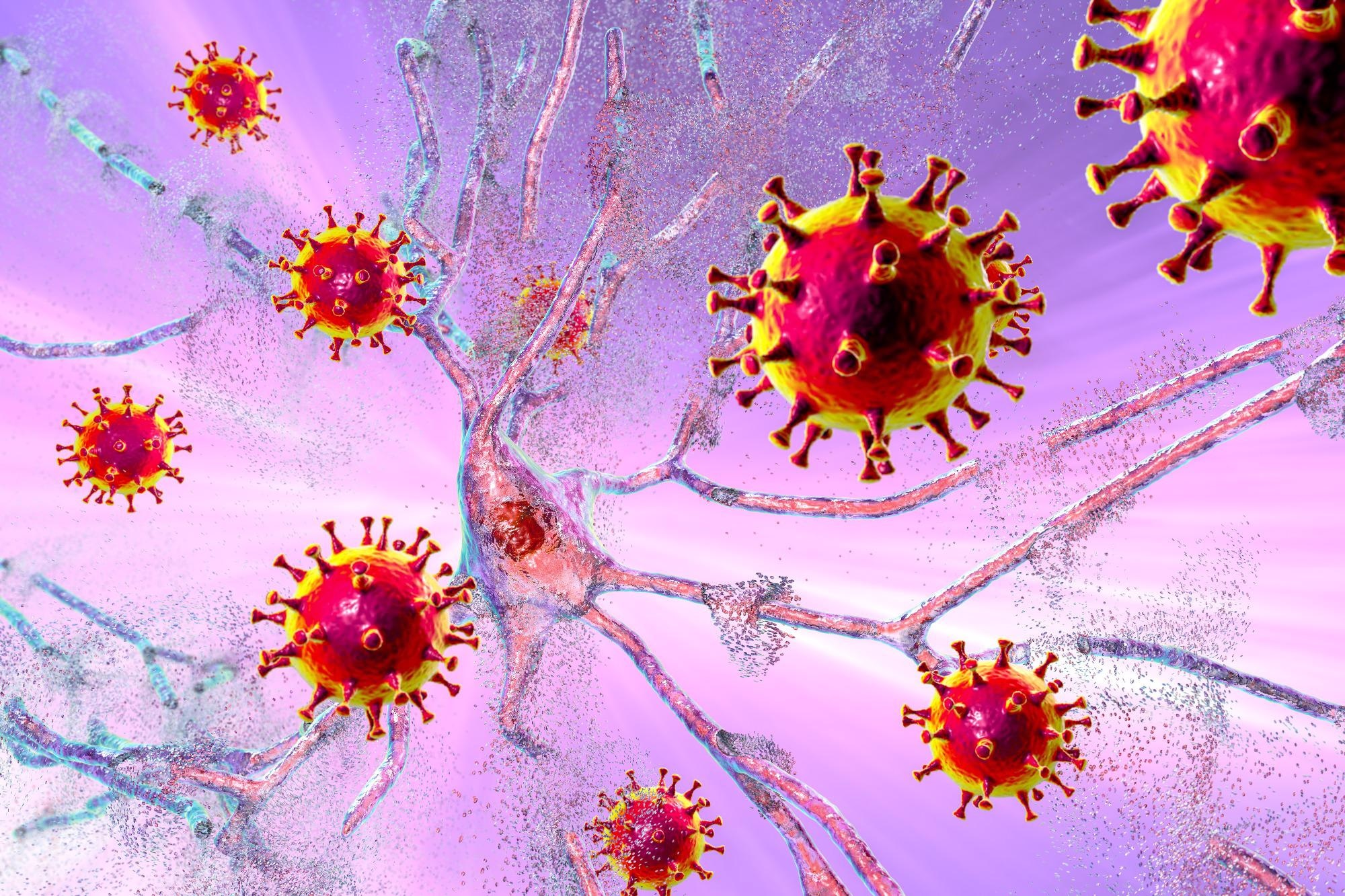In a recent study published in the Jama Network Open journal, researchers investigated the impact of in utero exposure to coronavirus disease 2019 (COVID-19) on the neurodevelopment of infants.
It is still unclear if a mother’s severe acute respiratory syndrome coronavirus 2 (SARS-CoV-2) infection affects her offspring’s neurodevelopment. However, the robust immune activation observed in a subset of infected individuals suggests that maternal and placental inflammation may influence fetal development and the expression of cytokines during critical developmental windows.
Study: Neurodevelopmental Outcomes at 1 Year in Infants of Mothers Who Tested Positive for SARS-CoV-2 During Pregnancy. Image Credit: Kateryna Kon / Shutterstock
About the study
In the present study, researchers explored whether in utero SARS-CoV-2 exposure was related to the risk for neurodevelopmental disorders within the initial 12 months post-birth.
The team obtained data from the electronic health records (EHRs) of two academic medical centers and six community hospitals to identify all live births between March and September 2020. Infants were linked to their respective maternal records using information from the electronic data warehouse (EDW) according to the date and time of birth, gender of the offspring, and medical record number.
To collect information related to the mothers, the team queried the international statistical classification of diseases and related health problems (ICD-10) billing codes, medications, problem lists, and laboratory studies conducted from the date of the estimated latest menstrual period up to the date of discharge post-delivery. The team also collected maternal data, including age, gender, insurance type, race, and ethnicity.
The primary outcome of the study included the diagnosis of a neurodevelopmental disorder, which was based on the presence of a minimum of one ICD-10 code from the healthcare cost and utilization project (HCUP) level 2 developmental category (code 654), which included F7x denoting intellectual disabilities and F8x comprising of F80 for developmental disorders of speech and language, F81 for specific developmental disorders of scholastic skills, F82 for a specific developmental disorder of motor function, F84 for pervasive developmental disorders, and F88/89 for other/unspecified disorder of psychological development. Two physicians reviewed all COVID-19 positive case charts in order to verify the documentation of the related diagnosis.
The team defined maternal COVID-19 positivity according to the result of the laboratory polymerase chain reaction (PCR) performed at any point throughout the pregnancy. The trimester during which the SARS-CoV-2 exposure occurred was calculated based on the established gestational age: first trimester (zero to 12 weeks), second trimester (12 to 26 weeks), and third trimester (26 weeks up to delivery).
Results
The study population comprised 7,772 live births with an average maternal age of 32.9 years. Almost 10% of the total offspring were Asian, 8.4% were Black, and 69% were White. The overall rate of COVID-19 positivity during pregnancy was 2.9%. The team noted that 3.2% of the pregnant COVID-19-positive women were Asian, 36.9% were White, and 51.8% were Hispanic. Moreover, preterm delivery was more likely to occur among SARS-CoV-2-exposed mothers.
The study results showed that 6.3% of the exposed and 3.0% of the unexposed offspring received a neurodevelopment diagnosis in the first 12 months after birth. The most commonly occurring neurodevelopment diagnoses included specific developmental disorders of motor function, expressive language disorder, and developmental disorder of speech and language. The average time of diagnosis was earlier among the exposed offspring than the unexposed ones.
Overall, the study showed that offspring exposed to COVID-19 had a greater risk of suffering from adverse neurodevelopmental outcomes within 12 months after birth, especially those exposed to third-trimester maternal infection.
The researchers believe that follow-up studies will prove critical in confirming the correlation between and estimating the risk of neurodevelopmental disorders after in utero SARS-CoV-2 exposure.
